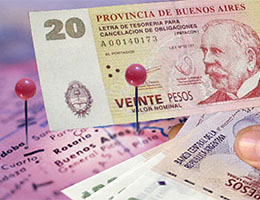 The term quasi derives from the Latin word quasi , which can be translated as “approximately” . The concept is used as a synonym for almost . For example: “The governor described the former president's statements as a quasi-mafioso message,” “Having computer knowledge is almost mandatory to get a job today,” “The coach surprised by calling up a striker who was almost unknown in the local media.” ” .
The term quasi derives from the Latin word quasi , which can be translated as “approximately” . The concept is used as a synonym for almost . For example: “The governor described the former president's statements as a quasi-mafioso message,” “Having computer knowledge is almost mandatory to get a job today,” “The coach surprised by calling up a striker who was almost unknown in the local media.” ” .
Quasi can also be used as a prefix . When it is placed before a noun or an adjective , it indicates that there is a similarity to what is denoted, but without the second term having all the characteristics of the first.
A quasi-currency , in this framework, is a bond or other document that is used in a similar way to a coin . The notion became popular in Argentina in 2001 and 2002 when, faced with a lack of money , the national government and numerous provincial governments issued bonds that circulated as legal tender.
In this way, people could use these vouchers to buy all types of merchandise (food, clothing, appliances, etc.) and even to pay taxes . Lecop bonds and Patacones bonds were the most used quasi-currencies.
It is important to note that the term quasi-currency was coined to refer to these bonds in informal contexts, outside the economic theory that supported them. In addition to the national government of the Argentine Republic, fifteen other governments at the provincial level used these quasi-currencies throughout the crisis that hit the country between 2001 and 2002.
These bonds were bearer bonds , meaning that anyone who had them in their possession could use them, without the need for special authorization. Regarding its shape and size, it was very similar to that of legal tender bills , which at that time were Argentine pesos.
The restriction on the issuance of currency was due to the liberal policies that former President Carlos Menem had promoted and also to the consequences of the Convertibility Law that had been in force for two decades. The creation of these quasi-currencies was devised to combat the lack of liquidity and allow citizens to continue with their consumption habits, since otherwise trade would have been frozen.
In the field of law , we speak of a quasi-contract with reference to a lawful act that is constituted as a source of legal obligations. In a quasi-contract, a person accepts a voluntary act that gives rise to obligations.
 The quasi-contract has a non-conventional nature and the obligation is generated by the law itself, since it provides effectiveness to a set of voluntary acts in a framework in which two subjects participate.
The quasi-contract has a non-conventional nature and the obligation is generated by the law itself, since it provides effectiveness to a set of voluntary acts in a framework in which two subjects participate.
In the Civil Code of Spain, quasi-contracts are defined in article 1887, in Title XVI and grouped in obligations contracted without an agreement , as "lawful acts that entail an obligation towards a third party, and in some cases also one on the other." of this towards the author. The requirements are the existence of a voluntary legal legal fact and that, as mentioned above, there is no agreement.
For Spanish doctrine, quasi-contracts are obligations that arise from the law itself, which is why only if it recognizes them can they generate obligations. The two examples of quasi-contracts in Spanish legislation are the management of other people's businesses and the collection or payment of undue amounts , as stated in the Civil Code in articles 1888-1894 and 1895-1901, respectively.
A quasi-delict , finally, is an action or omission that generates involuntary damage. For continental law, quasi-delicts are harmful acts that are carried out without intent.
